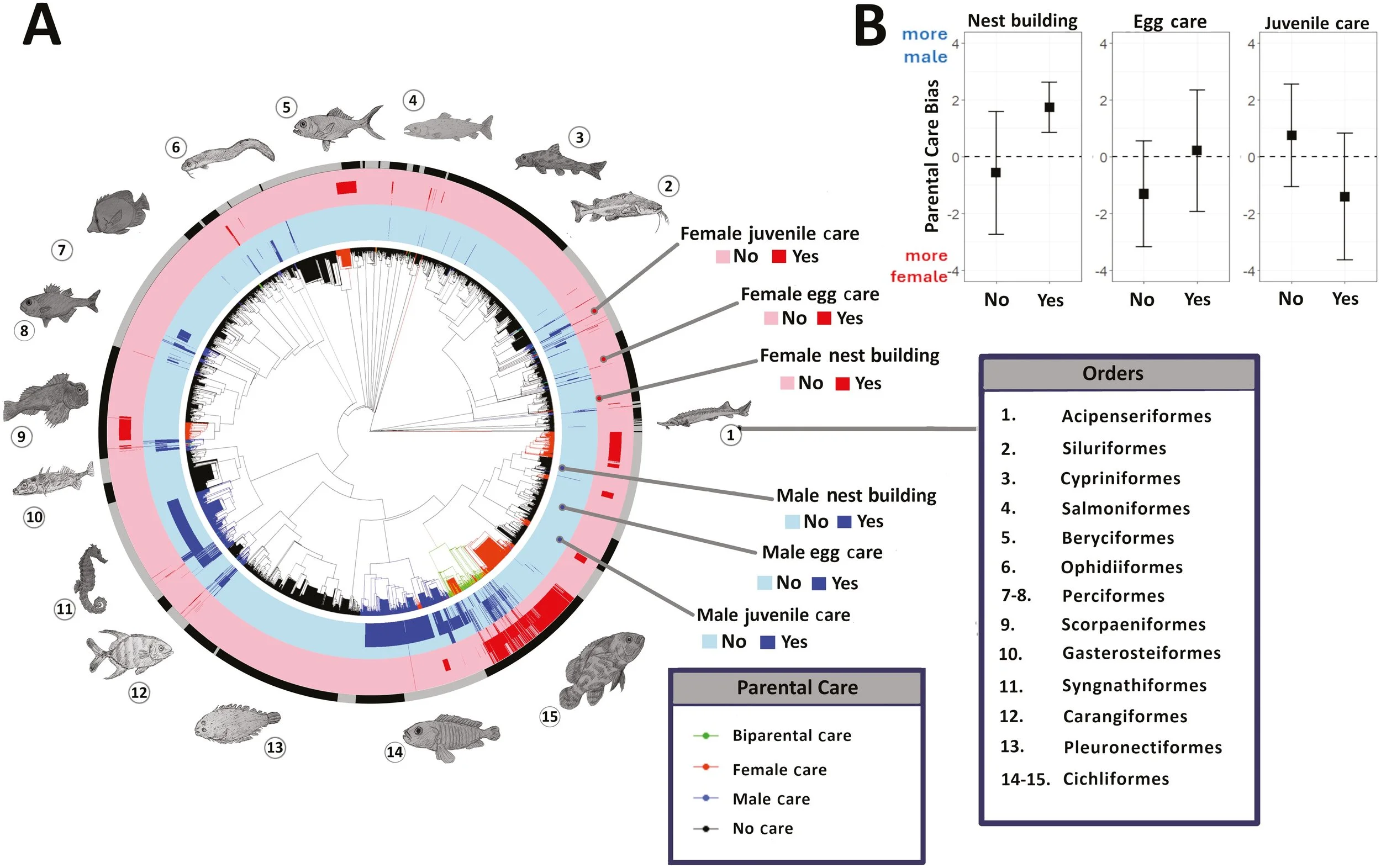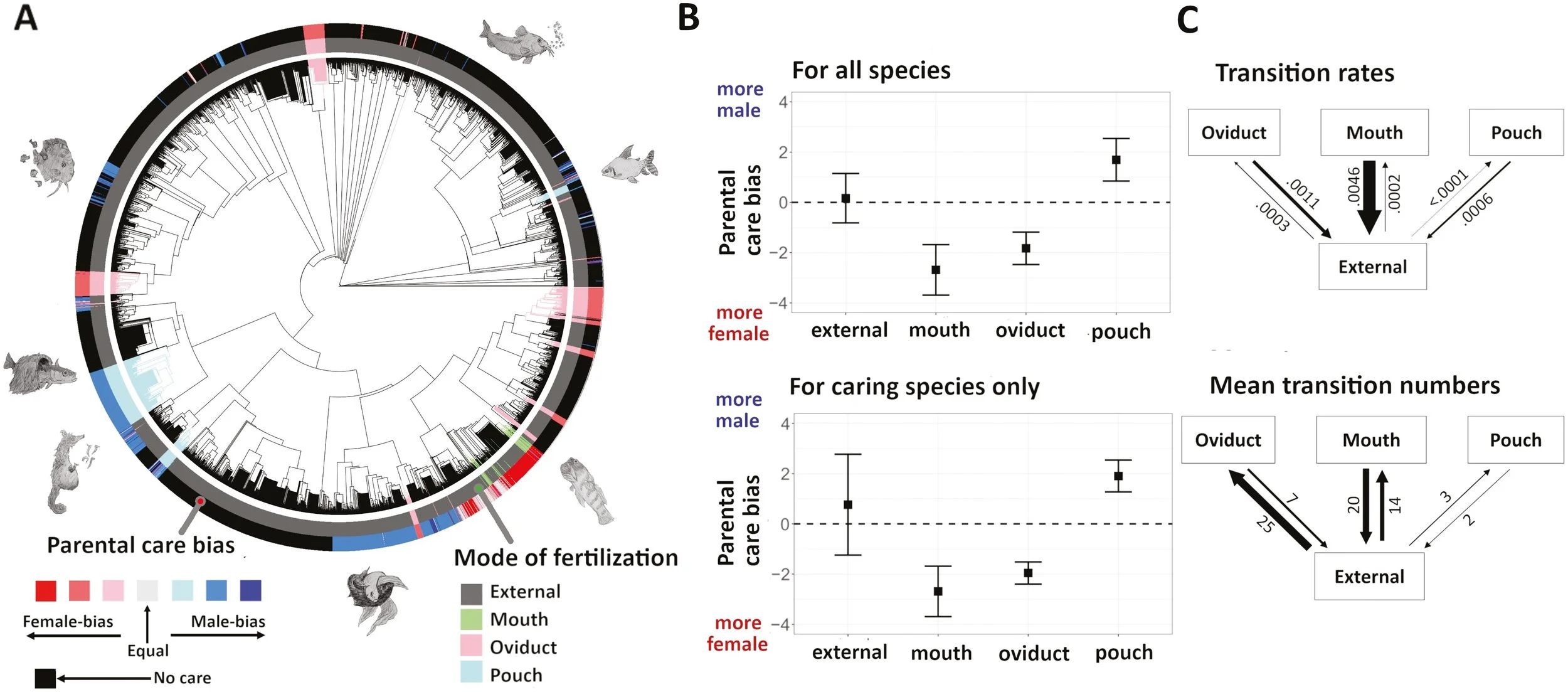Why care? Extreme diversity of parenting in fishes
Fishes exhibit some of the most diverse forms of parental care, and a recent phylogenetic study identified fertilisation mode as a key driver of parenting. An international team of scientists led by HUN-REN–UD Evolution of Reproductive Strategies Research Group at the University of Debrecen, Hungary published their findings in Evolution, a top international journal in evolutionary biology.
A clownfish parent over its eggs. Photo by Richard Pillans, CSIRO.
While fishes are usually not considered as devoted parents, their diversity in parenting – according to the duration and form of care – is greater than in any other vertebrate group. This is somehow counterintuitive since reproducing in water seems lot more straightforward than breeding on land since the parents can simply broadcast their sperm and eggs in the water and their offspring will likely to survive on their own. What may have driven the evolution of complex parenting in fishes?
Phylogenetic distribution of care types (branch colors) and care episodes in male (inner three rings) and female (outer three rings) in ray-finned fishes (n = 7,581 species). Fish images are original artwork by M. G. Mándi. (B) Parental care bias in the presence/absence of three episodes of care.
“First we extracted data on the parenting of 7600 fish species from various literature sources” – Dr Balázs Vági, first author of the publication says. “Then we mapped the parenting behaviour on the phylogeny. The analyses showed that male fish tend to provide care at the early developmental stages (nest building or egg care), while the females provide more parental care to the fry. This is consistent with theoretical expectations since males build the nest so that they can attract several females to lay their eggs inside the nest. In contrast, females put substantial resources into producing the resource-rich eggs so they can provide care for the fry once they have replenished their body condition. ”
The evolution of fertilization modes in ray-finned fishes and their association with parental care bias. (A) The evolution (depicted by branch colors) and current distribution (depicted by the inner color ring) of fertilization modes, along with the distribution of parental care bias (shown in the outer color ring) across 7,289 species of ray-finned fishes. Fish images are original artwork by M. G. Mándi. (B) The extent of parental care bias (mean ± SD) in different fertilization modes. (C) Transition rates and mean transition numbers between fertilization modes.
The study – which is the largest examination of parental behaviour in any organism yet – also showed that fertilisation of the eggs has a decisive role in shaping caring over evolutionary time. Fishes invented multiple ways for internal fertilization: in the oviduct, in the mouth or in a brood pouch or similar structure. By fertilising the eggs inside the body cavity, the parent has control over paternity. Thus fertilisation has a key role in the evolution of parental care in fishes: the parent that will have more control over fertilization will be more likely the sole or the dominant care provider.
Male convict cichlid, Amatitlania nigrofasciata, guarding its brood. Photo by Ross S. DeAngelis and Hans A. Hofmann.
"An important implication of our results is that parenting already diversified in an aquatic environment, due to relatively undemanding offspring, and thus diverse parenting could be a precursor in early vertebrates for conquering terrestrial habitats" – concludes Prof Tamás Székely, senior author of the study.




